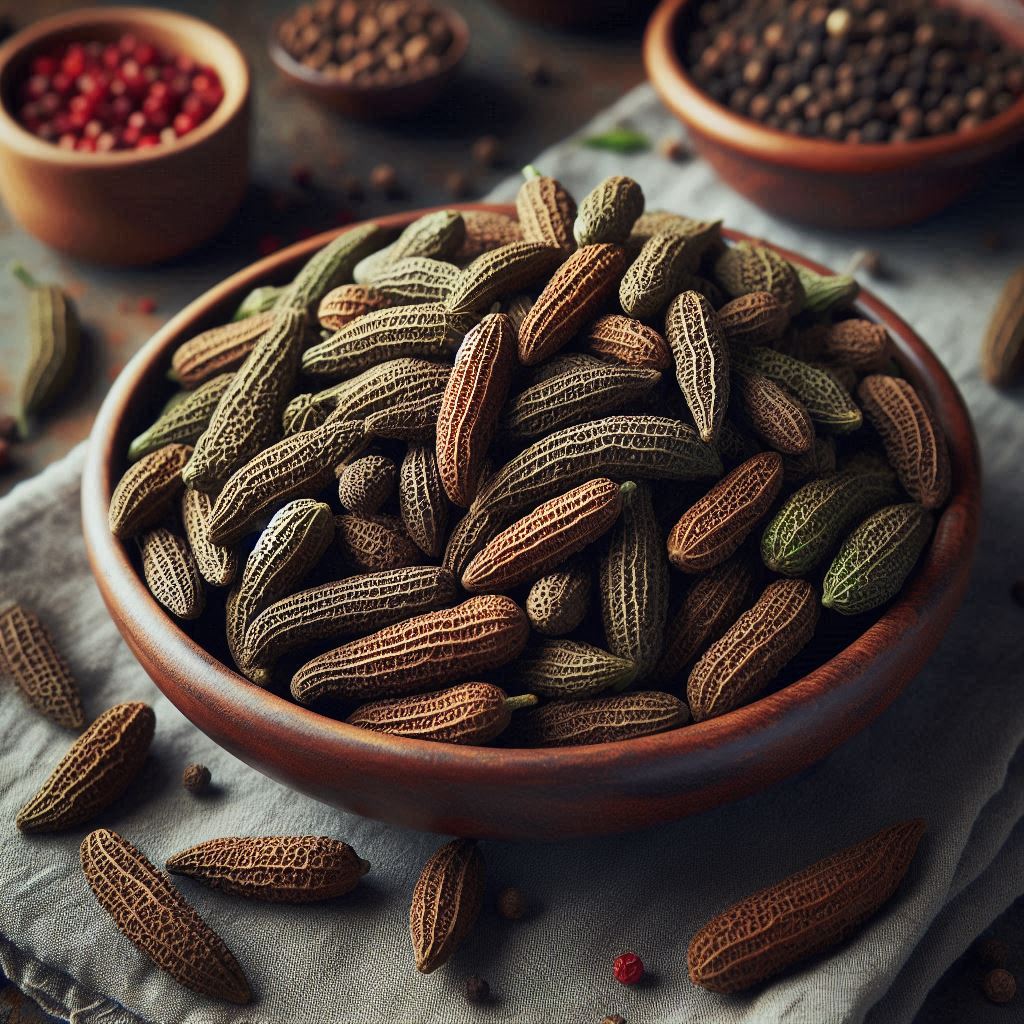Pippali, also known as long pepper or Piper longum, is a medicinal herb widely used in Ayurveda. It has been traditionally used for its various health benefits, including improving digestion, promoting respiratory health, and enhancing immunity (Sharma et al., 2013).
Studies have shown that Pippali has anti-inflammatory and antioxidant properties that may help protect against oxidative stress and inflammation-related diseases (Joshi et al., 2018). Pippali also has been shown to have antimicrobial activity against a variety of bacteria and fungi, including E. coli and Candida albicans (Nagarajan & Ramanathan, 2003).
Additionally, Pippali has been found to have hepatoprotective effects, protecting the liver from damage caused by toxins (Patil et al., 2011). It may also have anti-cancer properties, with studies showing its potential to inhibit the growth of cancer cells (Kim et al., 2012).
In Ayurveda, Pippali is often used in combination with other herbs, such as ginger and black pepper, to enhance its effects (Joshi et al., 2018). It can be consumed in various forms, including as a powder, decoction, or in combination with other herbs in Ayurvedic formulations.
While Pippali is generally considered safe when consumed in moderation, excessive consumption may lead to side effects such as gastrointestinal discomfort and liver toxicity (Sharma et al., 2013). It is recommended to consult a healthcare provider before using Pippali for medicinal purposes.
Overall, Pippali is a versatile and potent herb with a wide range of potential health benefits. Its traditional use in Ayurveda, as well as its promising scientific research, make it a valuable addition to natural medicine.
References:
Joshi, H., Parle, M., & Chaturvedi, C. (2018). Pharmacological and therapeutic activity of Piper longum Linn.: A review. Indian Journal of Traditional Knowledge, 17(2), 268-275.
Kim, H. K., Park, S. Y., Park, H. J., Moon, H. I., & Choi, S. Z. (2012). Pippali (Piper longum L.) extract reduces colon tumor growth and suppresses cancer stem cell proliferation through the activation of AMPK pathway. Food and Chemical Toxicology, 50(5), 1568-1578. doi: 10.1016/j.fct.2012.02.013
Nagarajan, S., & Ramanathan, M. (2003). Anti-microbial activity of some medicinal plants. Journal of Tropical Medicinal Plants, 4(1), 53-56.
Patil, M. V., Kandhare, A. D., Bhise, S. D., Bhutada, M. S., & Bodhankar, S. L. (2011). Hepatoprotective effect of Piper longum Linn. extract against CCl4-induced liver injury in rats. Indian Journal of Experimental Biology, 49(2), 146-154.
Sharma, R. A., Bhatt, T. K., & Shukla, V. (2013). Medicinal attributes of Piper longum L. (Pippali): A review. Journal of Chemical and Pharmaceutical Research, 5(3), 147-153.

